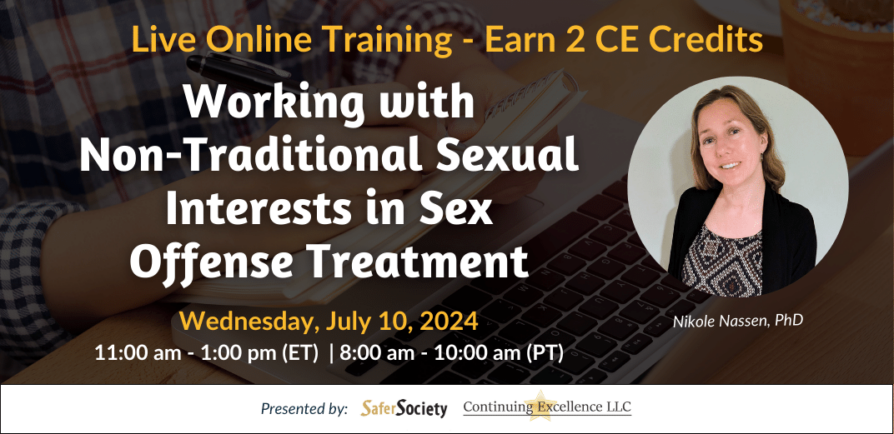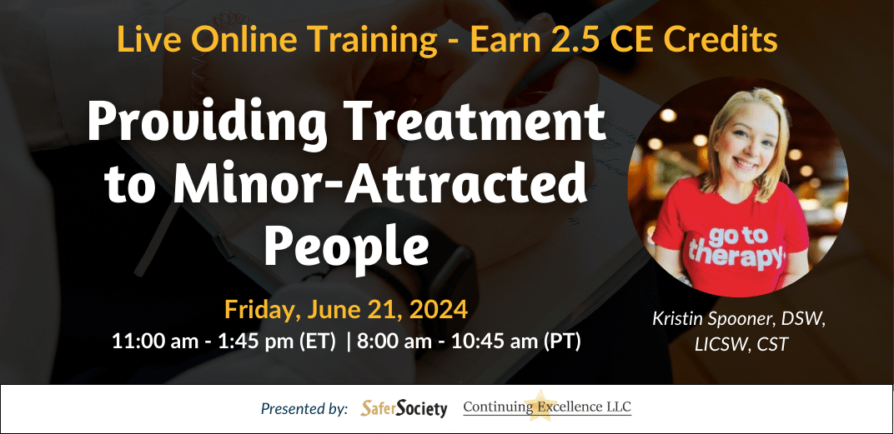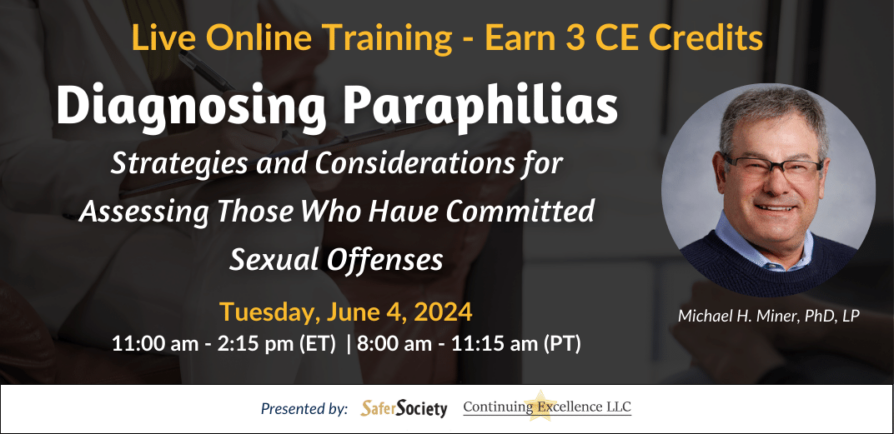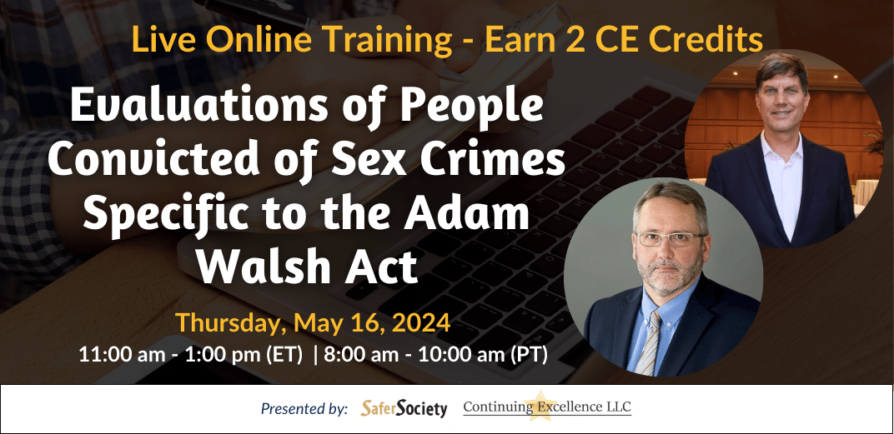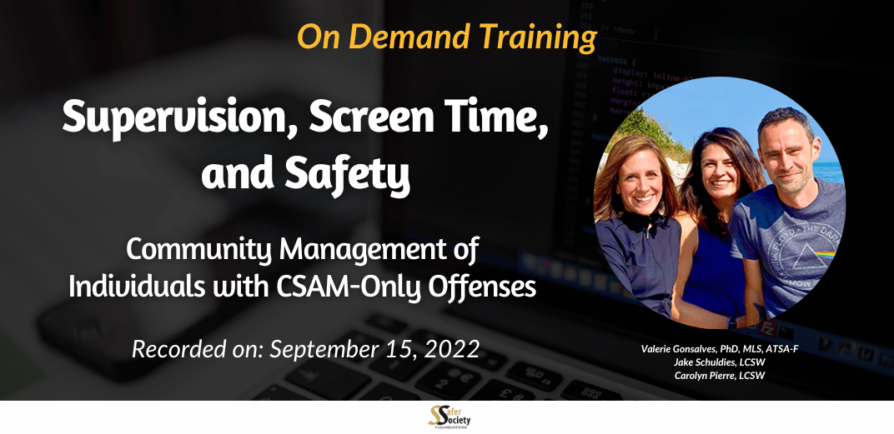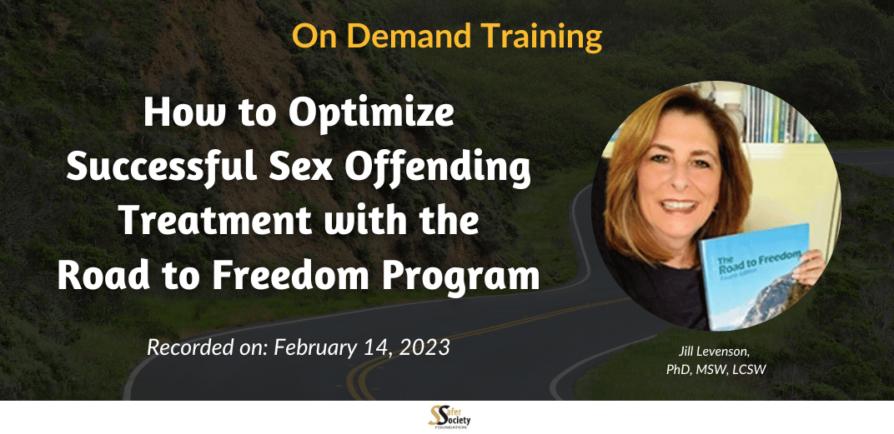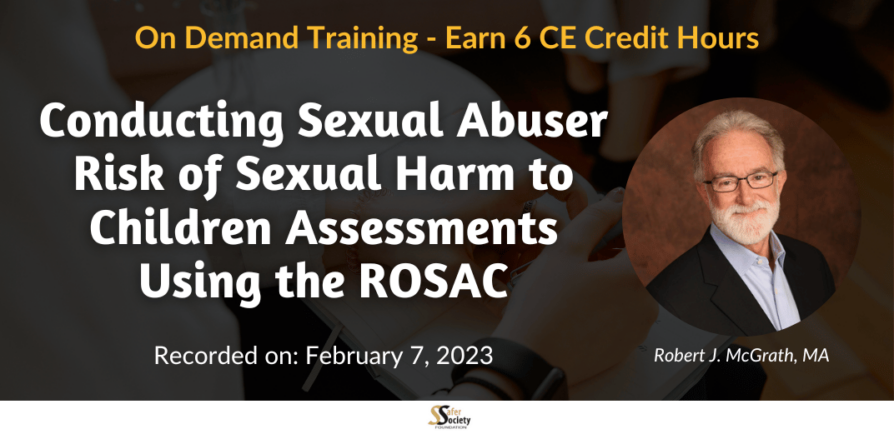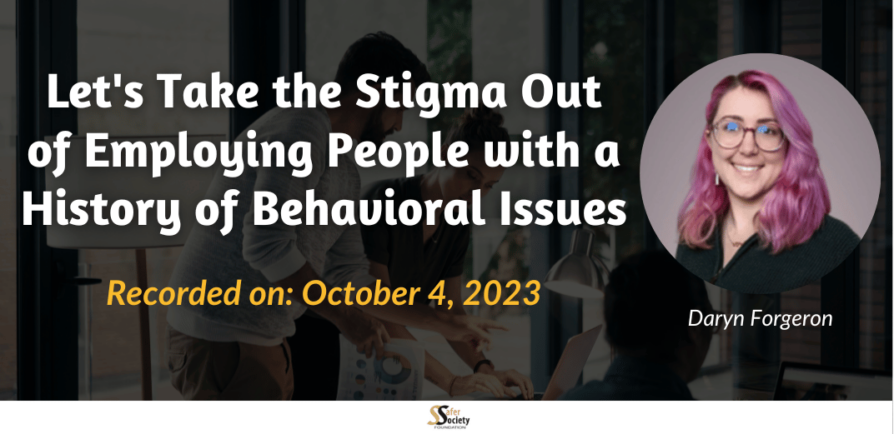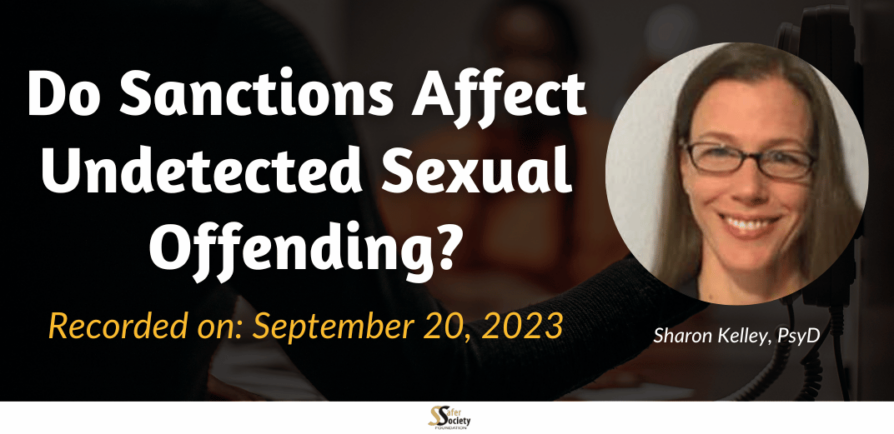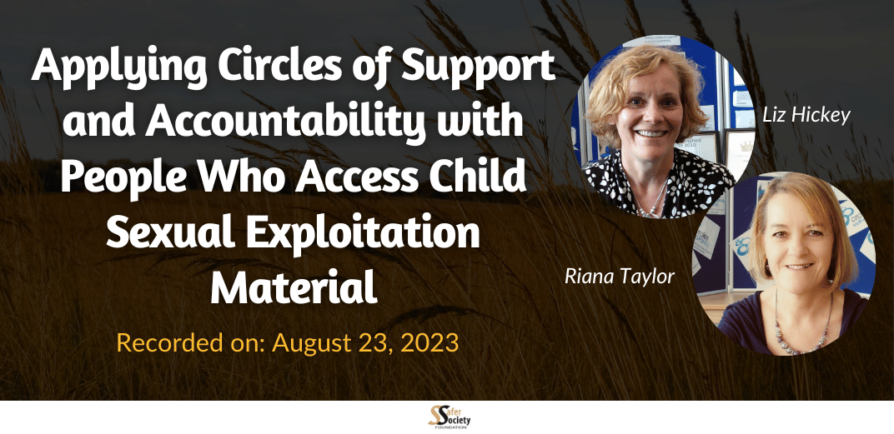Nikole Nassen, Ph.D., a distinguished clinical psychologist and the director of the Sex Offender Treatment Program at Naval Consolidated Brig Miramar, brings her wealth of experience in working with individuals who have expressed non-traditional sexual interests to the forefront. During this training, Dr. Nassen first presents data on BDSM (Bondage and Discipline, Dominance and Submission, and Sadism and Masochism) and other practices in the kink community, unveiling surprising insights from research studies. Dr. Nassen then examines “kink culture” and illustrates how many of its strongest values are antithetical to abuse. Enhanced comprehension of non-traditional sexual preferences among professionals can significantly enhance the effectiveness of treatment interventions.
Providing Treatment to Minor-Attracted People
This training explores how stigma, social norms, moral panic, and sexual attraction act as barriers to those seeking help in preventing themselves from committing their first offense. Dr. Spooner provides a comprehensive understanding of minor-attracted people, as well as the inaccurate narratives about MAPs that result in strained relationships between providers and clients. Lastly, participants are encouraged to identify and reflect on their personal biases, explore effective approaches to meeting the needs of MAPs, and consider alternative approaches to current practices.
Diagnosing Paraphilias: Strategies and Considerations for Assessing Those Who Have Committed Sexual Offenses
During this training, Dr. Michael Miner, Emeritus Professor of Family Medicine and Community Health at the University of Minnesota, addresses the criteria and processes of diagnosing paraphilias and paraphilic disorders as described in the DSM-5-TR. He covers historical and current definitions, clarifies the differences between paraphilias and disorders, focuses on pedophilia considerations, and guides attendees through diagnosing various paraphilias, such as sexual sadism and voyeurism, with insights on applying DSM-5-TR criteria effectively.
Evaluations of People Convicted of Sex Crimes Specific to the Adam Walsh Act
Assessments for determining risk under the AWA are intricate, involving evaluators in complex clinical and ethical dilemmas uncommon in typical sexual offender evaluations. During this training, psychologist Dr. Thompson and immigration attorney Mr. Lolly discuss the intricacies of these assessments—what works and what doesn’t—arriving at recommendations from both legal and clinical perspectives.
Supervision, Screen Time, and Safety: Community Management of Individuals with CSAM-Only Offenses
Individuals convicted of CSAM offenses have unique offense-related needs that differ from other offenders who have engaged in sexually abusive behaviors. Supervision and treatment professionals (including probation and parole officers) who work with these individuals need specific training to address their cluster of needs. This training offers specific skill-based interventions based on current research that supervision professionals can utilize with their clients during office visits. This training further discusses current research which can help inform policy and procedure around supervision of these individuals.
Online Training: How to Optimize Successful Sex Offending Treatment with the Road to Freedom Program
This four-hour training explores implementing a program based on the 4th edition of the workbook, The Road to Freedom, for people who have committed sexual offenses.
The RTF4 program is strengths-based, client-centered, trauma-informed, and based on the principles of risk, need, and responsivity. The training focuses on using the workbook in treatments that aim to reduce dynamic risk. Dr. Levenson further discusses the RTF4 sex offending treatment goals in the context of facilitating broader change in clients’ lives.
Conducting Sexual Abuser Risk of Sexual Harm to Children Assessments Using the ROSAC
Mental health, corrections, and child protective services professionals are commonly asked to assess the risk that a person who has sexually abused poses to a specific child and under what circumstances, if any, the abuser might safely be allowed to have contact with the child. The Risk of Sexual Abuse of Children (ROSAC: McGrath, Allin, & Cumming, 2015) is a structured professional judgment assessment instrument for conducting these types of risk of sexual abuse assessments. This one-day online training reviews the theory and research basis for the ROSAC and focuses on using case studies to assist participants in practicing how to score and use the instrument to make risk determinations and develop safety plans.
Let’s Take the Stigma Out of Employing People with a History of Behavioral Issues
Employment can be an important re-entry method and strong protective factor for people who have committed an offense or with a history of behavior issues. Yet many employers are unwilling to hire these individuals. By increasing employers’ understanding, we can promote inclusive hiring and healthy workplaces.
This webinar features an open dialogue with Working Fields, a staffing agency that specializes in helping people eliminate barriers to employment. We will discuss hiring people with past behavioral issues, address common misconceptions, and tackle questions from Working Fields employer partners.
Do Sanctions Affect Undetected Sexual Offending?
Not every sex crime is reported to authorities. This simple fact has caused considerable fear in society, leading to questions about how much we really know about sexual abuse and those who perpetrate it. For those researching sex crimes, it becomes even more complicated: the rate of actual offending (both detected and undetected) appears to vary widely depending on who is being studied, how undetected sexual offending is defined, and how undetected sexual offenses are measured.
Applying Circles of Support and Accountability with People Who Access Child Sexual Exploitation Material
Circles of Support & Accountability (CoSA) is a restorative justice-informed initiative intended to assist in the post-release community integration of persons with sexual offense histories after periods of incarceration or other detention. It uses community volunteers trained and supported by locally employed professionals and experts. Since its inception, CoSA has been consistently shown to significantly reduce harm while increasing the likelihood of successful integration of participants into the community. In September 2020, Circles UK launched an innovative new program, Circles ReBoot, which helps individuals who have accessed Child Sexual Exploitation Material, who are typically at high risk to persist in offending and who have high levels of treatment need.
